Top 13 Uses of AI in Different Fields 2024
Artificial Intelligence (AI) is playing a vital role in different industries and shaping the future of technology. From healthcare to finance, education to manufacturing, AI transforms how we live and work, enhancing efficiency, improving decision-making, and opening new possibilities for innovation.
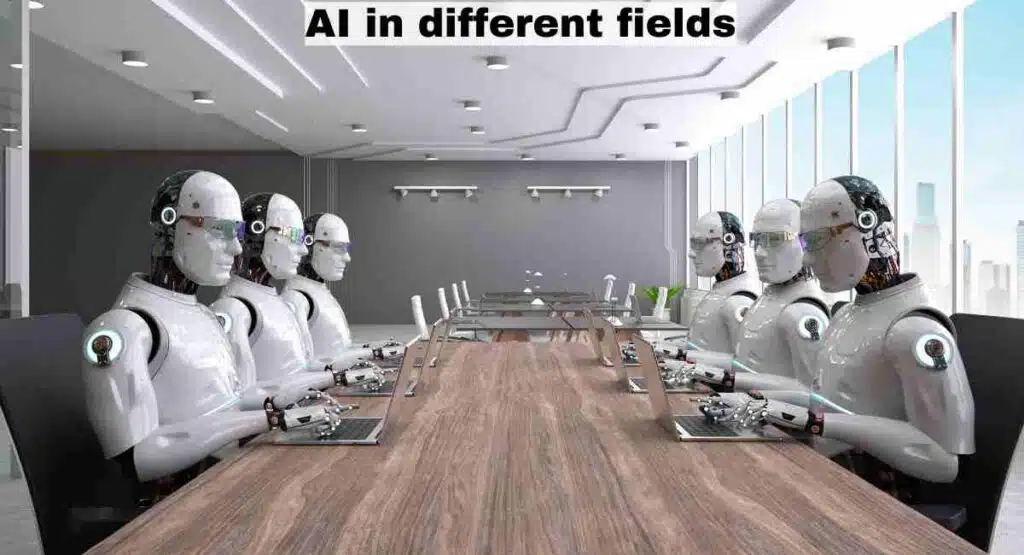
In this article, we will discuss applications of AI across various fields.
Uses of AI in Different Fields
The uses of AI in different fields are given below:
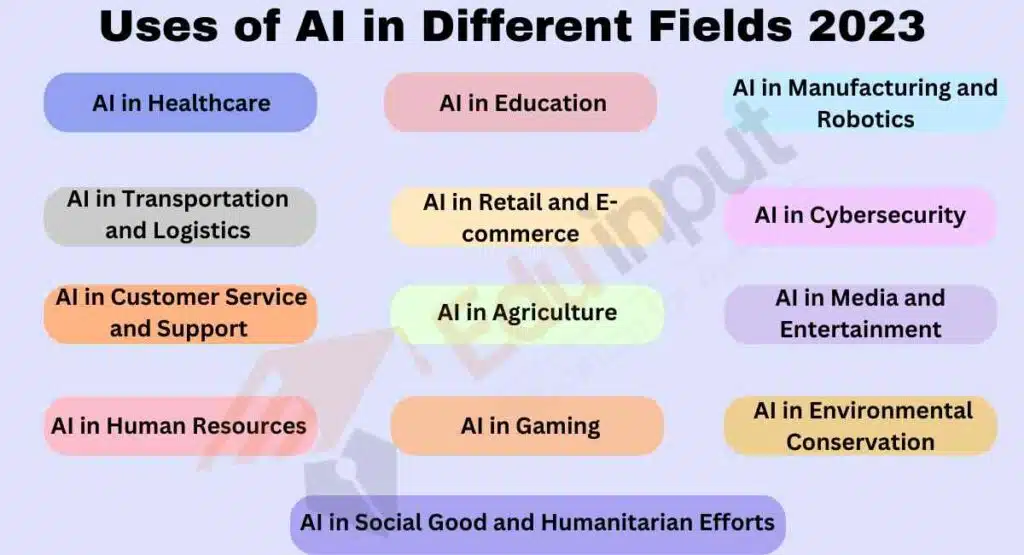
1. AI in Healthcare
AI is playing a crucial role in healthcare. It has changed healthcare by improving diagnostic accuracy. It analyzes medical data, like patient records and lab results, to find patterns and make predictions. This helps doctors make better decisions for faster and more effective treatments.
AI in Finance
AI is streamlining operations and improving efficiency through intelligent automation in the financial department. Machine learning algorithms can automate repetitive tasks, such as data entry and customer service, freeing up human employees to focus on more complex and strategic activities.

2. AI in Education
AI is changing education by offering personalized learning. It uses algorithms to understand students’ strengths and weaknesses and provides customized content and feedback. AI-powered chatbots and virtual assistants are also being used to provide immediate support and answer students’ queries.
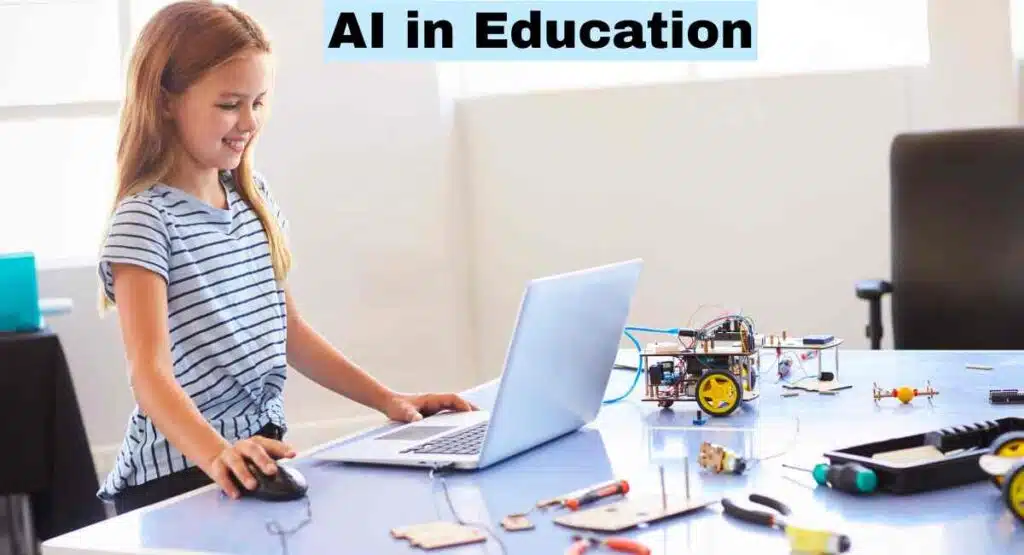
3. AI in Manufacturing and Robotics
AI is revolutionizing manufacturing with automated and precise robots and systems. They perform tasks efficiently, boosting productivity and minimizing errors. AI algorithms can analyze data from sensors and machines in real-time to optimize production workflows, minimize downtime, and enhance quality control.
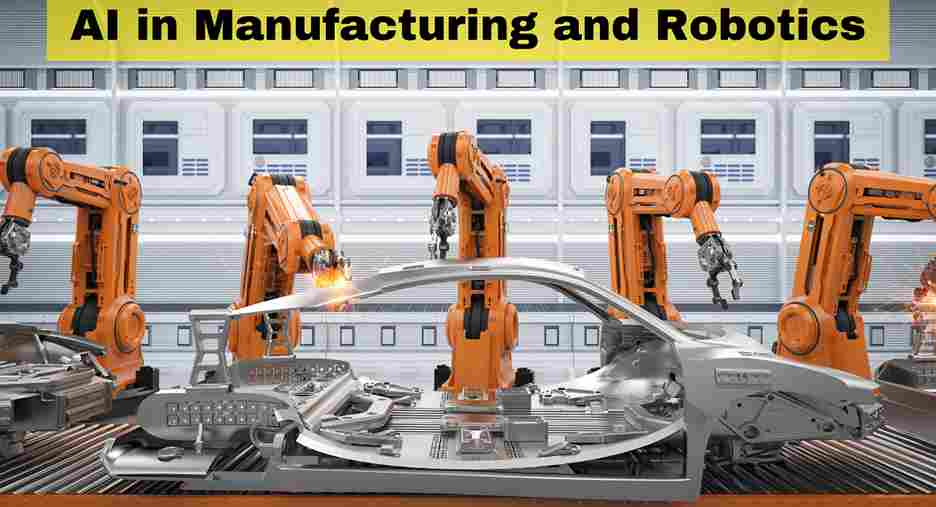
This results in improved operational efficiency and cost-effectiveness for manufacturing industries.
4. AI in Transportation and Logistics
AI is transforming transportation and logistics with autonomous vehicles and optimized route planning. Self-driving cars and trucks equipped with AI algorithms enhance fuel efficiency and reduce accidents.
Real-time traffic, weather, and delivery data analysis optimize routes, minimizing delivery time and costs while ensuring timely maintenance.
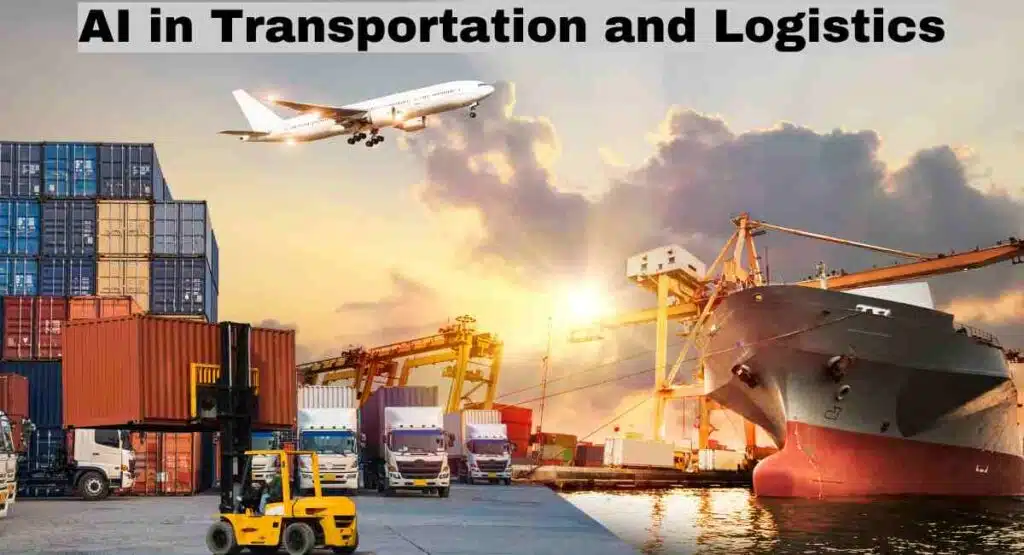
5. AI in Retail and E-commerce
AI is changing retail and e-commerce by personalizing experiences. It suggests tailored products based on preferences, improves customer support with chatbots and helps manage inventory, forecast demand, and detect fraud.

6. AI in Cybersecurity
AI strengthens cybersecurity by analyzing data to detect threats and vulnerabilities. It monitors network traffic, identifies malicious activities, and responds to cyberattacks. AI algorithms continuously learn and adapt to evolving threats, enhancing overall security for organizations.

7. AI in Customer Service and Support
AI transforms customer service with intelligent chatbots and virtual assistants. They understand and respond to queries, providing 24/7 instant support. Chatbots use natural language processing and machine learning to engage in human-like conversations, improving customer experience and response times.
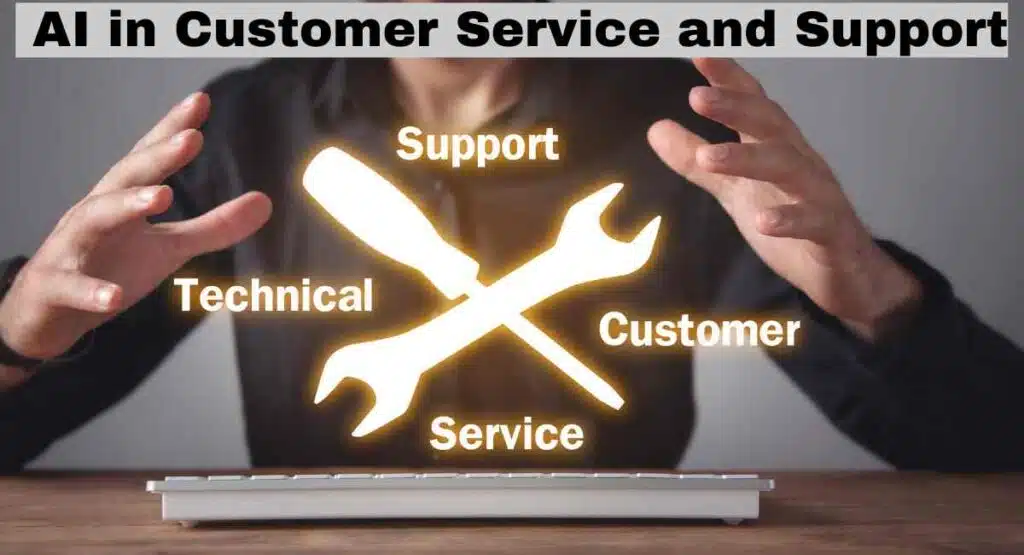
8. AI in Agriculture
AI is revolutionizing the agriculture industry through precision farming techniques. The application of AI in agriculture helps to analyze data from sensors, drones, and satellites to monitor soil conditions, weather patterns, and crop health. This information enables farmers to optimize irrigation, fertilizer usage, and pest control, increasing crop yields and reducing environmental impact.
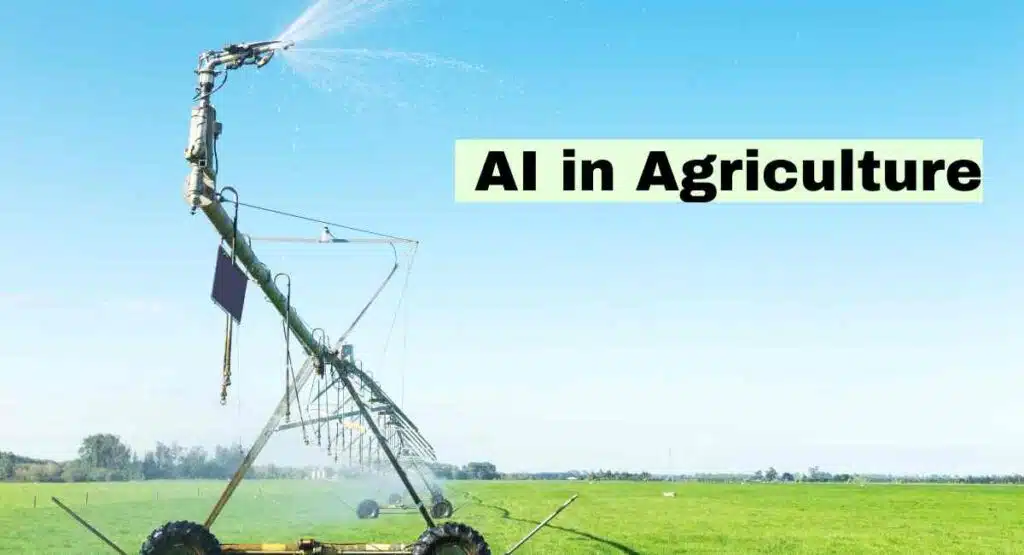
9. AI in Media and Entertainment
AI also plays an important role in the media and entertainment industry. AI is reshaping the media and entertainment industry by enabling personalized content recommendations. AI algorithms analyze user preferences, viewing patterns, and social media interactions to suggest relevant movies, shows, music, and articles.
AI is also being used to create content, such as personalized news articles or computer-generated graphics for movies and games.

10. AI in Human Resources
AI is revolutionizing human resources by streamlining talent acquisition and enhancing workforce management. AI-powered algorithms can analyze resumes, job descriptions, and social media profiles to match candidates with suitable job openings, saving time and effort in the recruitment process.
AI chatbots and virtual assistants can also handle employee queries, manage leave requests, and provide onboarding support. AI analytics tools enable HR professionals to gain insights into employee performance, engagement, and retention.
11. AI in Gaming
AI is also used in the gaming industry. AI-powered NPCs exhibit human-like behaviour, making gameplay more engaging and opponents more challenging. AI techniques like machine learning and computer vision enable virtual and augmented reality experiences.
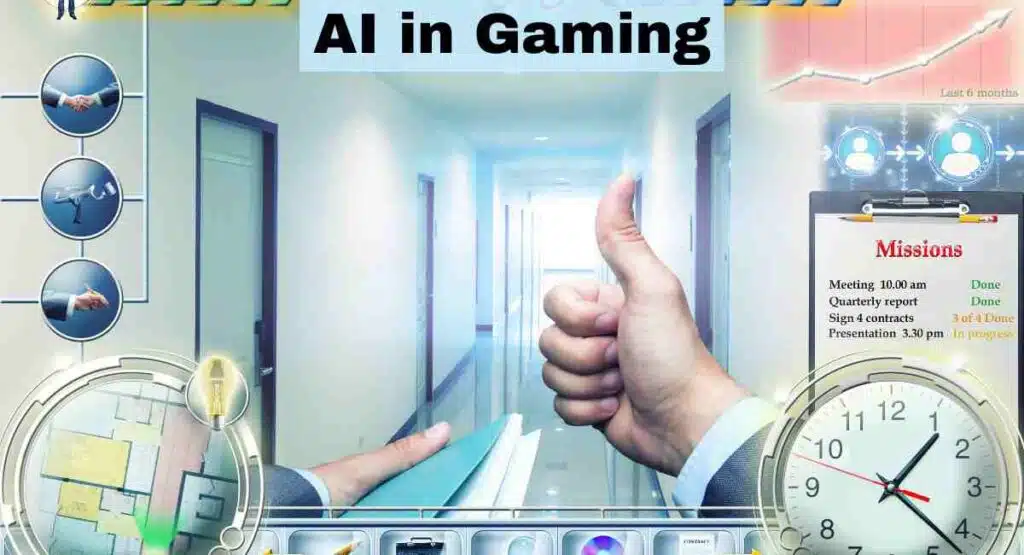
12. AI in Environmental Conservation
AI is playing a crucial role in environmental conservation efforts. AI-powered systems can analyze satellite imagery, sensor data, and animal tracking data to monitor deforestation, habitat loss, and wildlife populations. This information helps conservationists make data-driven decisions and implement effective strategies for protecting ecosystems and endangered species.
13. AI in Social Good and Humanitarian Efforts
AI aids social good by analyzing real-time data from diverse sources for disaster response and aid distribution. It optimizes resource allocation, aid distribution, and evacuation routes, enabling faster and more effective emergency responses. AI also facilitates language translation, improving communication in humanitarian contexts.
FAQs
How is AI helping in healthcare?
AI detects diseases early, helps in surgeries, and assists patients through virtual tools.
Can AI help farmers?
Yes, AI checks crop health, saves water through smart irrigation and controls pests
What role does AI play in cybersecurity?
AI detects cyber threats, prevents fraud, and secures systems with advanced tools like facial recognition.

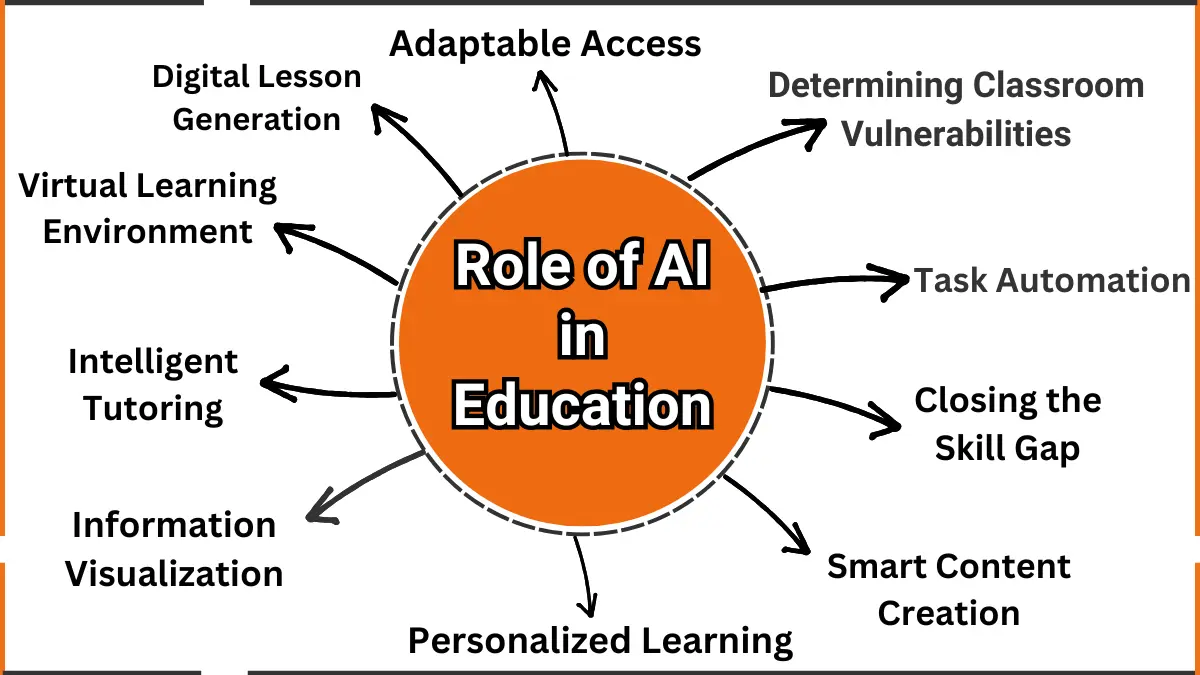


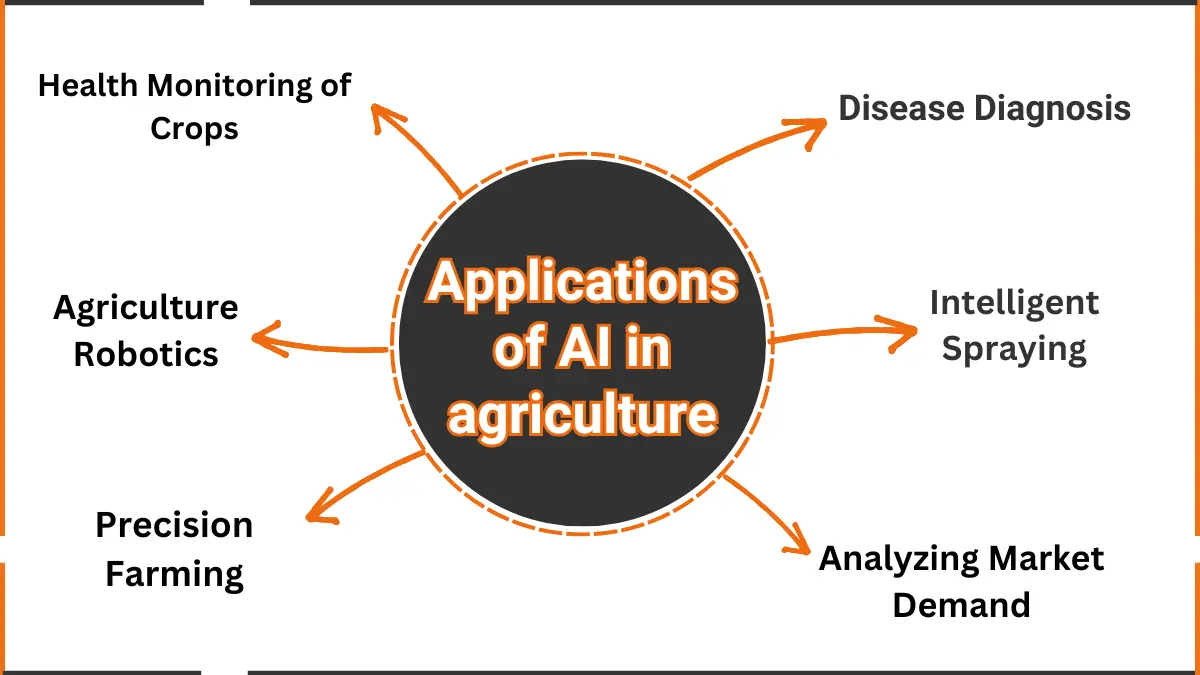


Leave a Reply